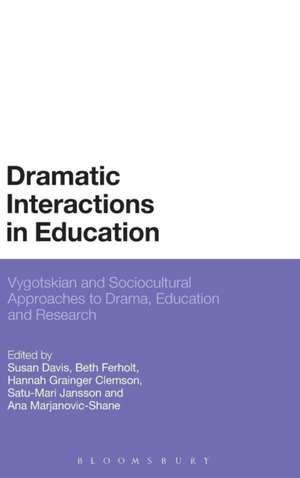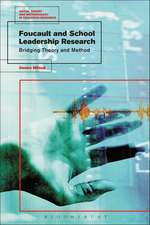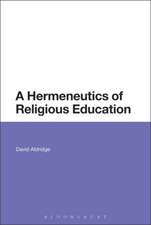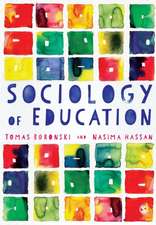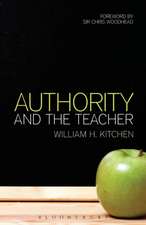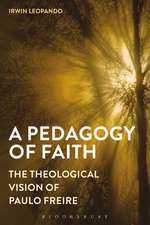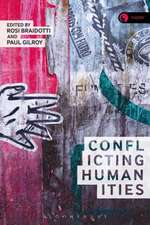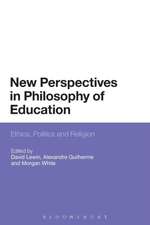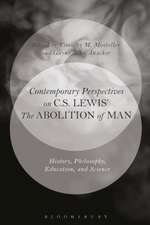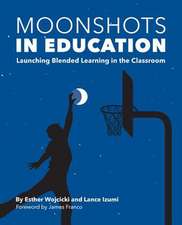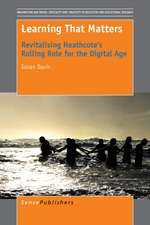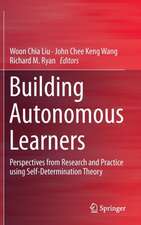Dramatic Interactions in Education: Vygotskian and Sociocultural Approaches to Drama, Education and Research
Editat de Susan Davis, Beth Ferholt, Hannah Grainger Clemson, Satu-Mari Jansson, Ana Marjanovic-Shaneen Limba Engleză Hardback – 17 dec 2014
| Toate formatele și edițiile | Preț | Express |
|---|---|---|
| Paperback (1) | 259.07 lei 6-8 săpt. | |
| Bloomsbury Publishing – 29 iun 2016 | 259.07 lei 6-8 săpt. | |
| Hardback (1) | 717.05 lei 6-8 săpt. | |
| Bloomsbury Publishing – 17 dec 2014 | 717.05 lei 6-8 săpt. |
Preț: 717.05 lei
Preț vechi: 916.11 lei
-22% Nou
Puncte Express: 1076
Preț estimativ în valută:
137.20€ • 143.27$ • 113.30£
137.20€ • 143.27$ • 113.30£
Carte tipărită la comandă
Livrare economică 15-29 aprilie
Preluare comenzi: 021 569.72.76
Specificații
ISBN-13: 9781472576897
ISBN-10: 1472576896
Pagini: 312
Ilustrații: 10 bw illus
Dimensiuni: 156 x 234 x 19 mm
Greutate: 0.62 kg
Editura: Bloomsbury Publishing
Colecția Bloomsbury Academic
Locul publicării:London, United Kingdom
ISBN-10: 1472576896
Pagini: 312
Ilustrații: 10 bw illus
Dimensiuni: 156 x 234 x 19 mm
Greutate: 0.62 kg
Editura: Bloomsbury Publishing
Colecția Bloomsbury Academic
Locul publicării:London, United Kingdom
Caracteristici
Contemporary analysis and application of important concepts such as perezhivanie and zone of proximal development
Notă biografică
Susan Davis is Senior Lecturer at Central Queensland University, Australia. Beth Ferholt is Assistant Professor of Education in Early Childhood and Art at Brooklyn College, City University of New York, USA. Hannah Grainger Clemson is a researcher currently working on education and cultural policy and programmes in the UK and Europe. She is also Tutor in Drama and Theatre Education at the University of Warwick, UK.Satu-Mari Jansson is a theatre-based trainer at Theatreworks Training, UK, and affiliated researcher at The Center for Research on Activity, Development and Learning (CRADLE) at the University of Helsinki, Finland.Ana Marjanovic-Shane is Associate Professor of Education at Chestnut Hill College, Philadelphia, USA.
Cuprins
Notes on ContributorsForeword, Vera John-Steiner (University of New Mexico, USA) Introduction: Vygotsky, Sociocultural Concepts and Drama in and for Education, Susan Davis (Central Queensland University, Australia), Hannah Grainger Clemson (University of Warwick, UK), Beth Ferholt (Brooklyn College, City University of New York, USA) and Satu-Mari Jansson (University of Helsinki, Finland) Part I: Vygotsky, Drama, Perezhivanie and the Unity of Development1. Dramatic Interactions: From Vygotsky's Life of Drama to the Drama of Life, Michael Michell (University of New South Wales, Australia)2. Stanislavski and Vygotsky: On the Problem of the Actor's and Learner's Work, Hannah Grainger Clemson (University of Warwick, UK)3. Perezhivanie in Researching Playworlds: Applying the Concept of Perezhivanie in the Study of Play, Beth Ferholt (City University of New York, USA)Part II: Sociocultural Insights into Learning through Drama4. Dialogue and Social Positioning in Dramatic Inquiry: Creating with Prospero, Brian Edmiston (Ohio State University, USA) 5. Identity and Creativity: The Transformative Potential of Drama, Harry Daniels (University of Oxford, UK) and Emma Downes (Bartley Green School, Birmingham, UK)6. Constructing Identity and Motivation in the Drama Classroom: A Sociocultural Approach, Richard Walker (University of Sydney, Australia), Michael Anderson (University of Sydney, Australia), Robyn Gibson (University of Sydney, Australia) and Andrew Martin (University of New South Wales, Australia)Part III: The Dynamics of Meaning Making Through Drama Processes in the Classroom7. Dramatic Play and Process Drama: Towards a Collective Zone of Proximal Development to Enhance Language and Literacy Learning, Robyn Ewing (University of Sydney, Australia)8. Sociocultural Theory, Process Drama and Second Language Learning , Penny Bundy (Griffith University, Australia), Erika Piazzoli (Griffith University, Australia) and Julie Dunn (Griffith University, Australia)9. Prolepsis and Educational Change Through Drama: Bringing the Future Forward, Patricia Enciso (Ohio State University, USA) 10. Interactive Drama with Digital Technology and Tools for Creative Learning, Susan Davis (Central Queensland University, Australia)Part IV: Practice and Research Inspired by Sociocultural Approaches to Drama, Education and Learning11. A Theatre Company's Development and Learning Through Cultural-historical Activity Theory and Developmental Work Research: Movement between Archetypes, Satu-Mari Jansson (University of Helsinki, Finland)13. How Environment Affects Learning: Schoolteachers Engaging with Theatre-based Pedagogies, Anton Franks (University of Nottingham, UK)14. Drama, Theatre and Performance Creativity, R. Keith Sawyer (Washington University, USA)15. Building a Workplace Theatre: Forum Theatre and Developmental Work Research as Developmental Resources in Interventions, Satu-Mari Jansson (University of Helsinki, Finland) Index
Recenzii
This invaluable compilation of essays synthesises Vygotsky's thinking, socio-cultural theories and the various practices of drama in education. As such, it shines a spotlight on how we come to do what we do as humans.
